My Zaidy’s Library
Rabbi Elisha Paul, Head of School, Rudlin Torah Academy, Richmond, Virginia
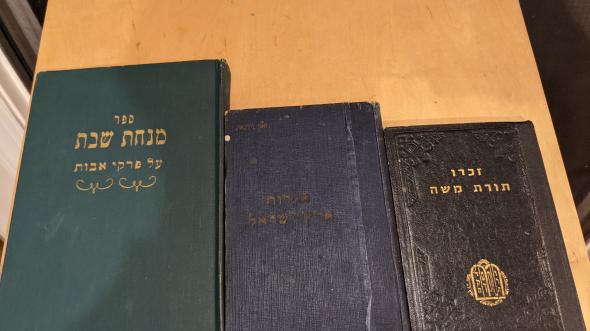
Rabbi Elisha Paul, Head of School, Rudlin Torah Academy, Richmond, Virginia
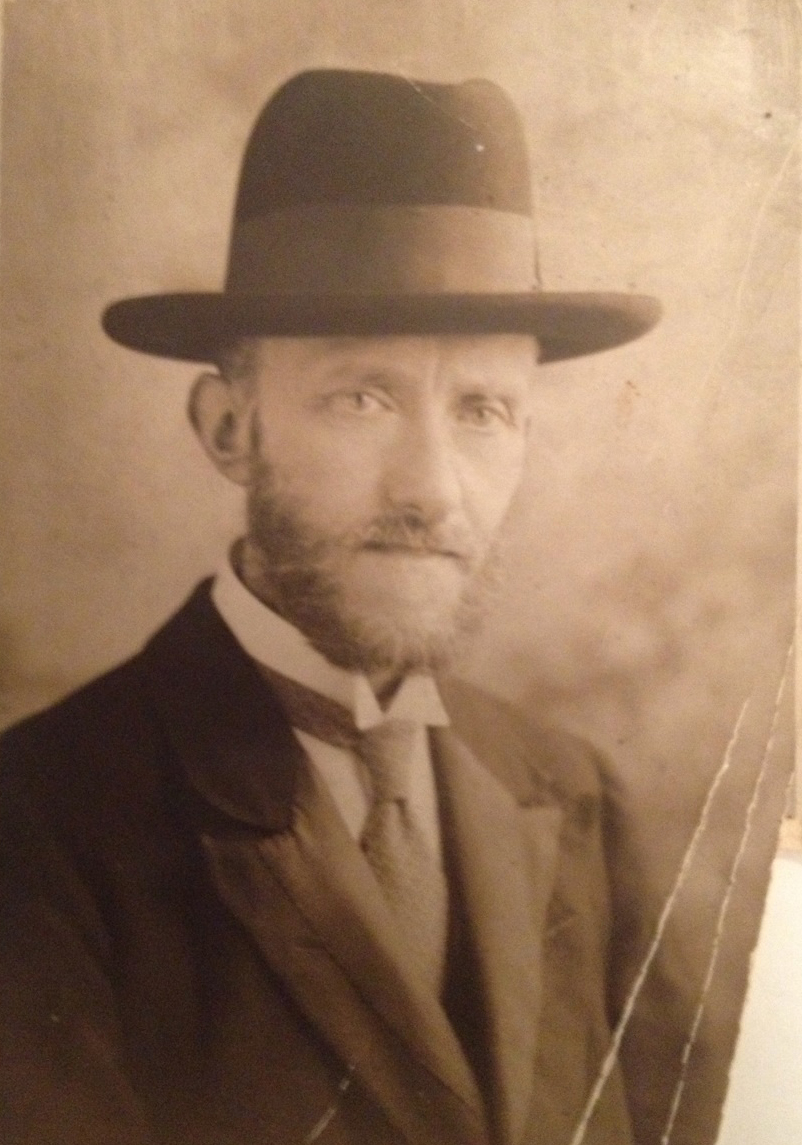
In my high school yearbook, I should have been nominated “least likely to become a teacher” despite the fact that my father was a career public school educator. To say the least, I was not the student most focused on academic studies or Jewish scholarship. I was way more interested in sports and my social life.
As a teenager, I once noticed that a bunch of boxes had been placed in the back of my closet, containing piles of old books with Hebrew lettering on them. When I asked my mother what they were, she simply said, “Those are Zaidy’s books he left us when he died.” In passing, she offered me whatever volumes I wanted.
For the next few years, I ignored those books and proceeded along my high school journey, but they always loomed large in the back of my mind and my closet. I periodically wondered if someday I would meet my grandfather in another realm, and if I did, what I would answer him when he asked me, “Nu, what did you do with my sefarim?”
This, combined with my desire to take a gap year in Israel in a school run by my old high school principal, led me to work hard that year to become fluent with our ancient Hebrew and Aramaic Jewish texts.
As I grew in my learning skills, I also grew in my interest in imparting my newfound love of learning to others. Ultimately, this led me to student-teach and embark on my now over 30-year career in Jewish education.
Thank God, I now am a zaidy myself who has a library of Jewish books of my own that I hope to give over to my own children and grandchildren someday. I really feel like I am living the Talmudic adage, “When a grandparent learns Torah with their grandchild, it is as if they received the Torah from Mt. Sinai.”
Rabbi Rebecca Ben-Gideon, Rabbi-in-Residence, B'nai Shalom Day School, Greensboro, North Carolina
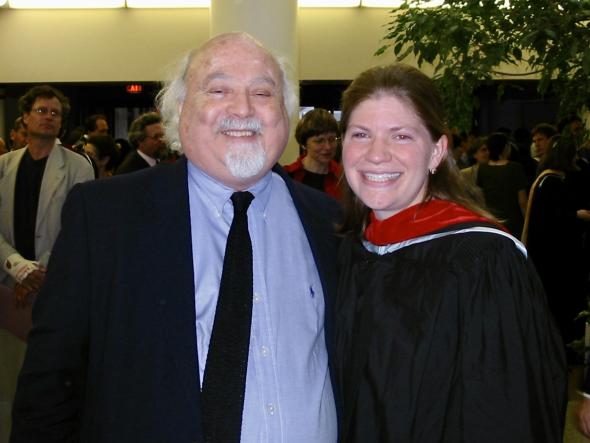
I’m lucky to have encountered an educator whose impact is so profound it is hard to express. I have struggled to write about how Rabbi Dr. Neil Gillman influenced my career path. I can’t think of much that I teach that does not have roots in learning with him about Judaism, religion and the power of an educator with a deep sense of purpose.
I was privileged to study with Rabbi Gillman during rabbinical school at the Jewish Theological Seminary. He gave me a unique pedagogical direction that inspires my work today. Throughout my studies with him, I acquired a hashkafah, a holistic approach to understanding the narratives, symbols and rituals of Judaism as a system that meets the universal, human need for meaning. This worldview has infused my teaching, my ideas about education and my professional choices. No less importantly, he treated my ideas as valuable and worthy of exploration, which helped me see myself as capable of being an impactful educator.
“I was once in an elevator with a colleague and his phone rang. An infant in his community had died.” He paused, turning to us with a pointed look. “Now, imagine you’re God. Explain yourself to the parents.”
I flailed, finally scribbling down something I’d heard before but didn’t really believe. “You’re going to need to work on that,” he told me with compassionate bluntness.
Gillman was determined to provoke, challenge and support every student’s theological development. “You really f***ed this one up, God,” shouted the colleague in the elevator. We were a little shocked. I signed up for as many of his classes as possible.
Two years ago, I wondered how I might similarly provoke my middle school students to consider new ways of relating to God. I collaborated with musician and educator Eliana Light and with the Jewish Education Innovation Challenge to invent and pilot Wrestling with God, a curriculum and approach to middle school God education. We aimed to blow middle schoolers’ minds with all the possibilities of what the word God can mean—and then to scaffold a process of examining ideas about God that resonate with them personally.
I teach about God as part of the larger goal of empowering each person to develop personally meaningful ways to own their own Judaism. Gillman’s determination to empower each Jew to develop a personal theology has infused everything I do. My role as a Jewish educator is to inspire, challenge and empower each individual to wrestle with their own ideas about God and to expand their sense of connection to God, Torah and Am Israel. This has been my meta-goal and orientation with every student and in each educational setting in which I have worked.
I recently found a note I wrote Rabbi Gillman at some point during rabbinical school that remarkably sums up the significance of this relationship:
I want you to know what an important impact you have had and continue to have on me as a Jew and as a future rabbi. Your teaching has pushed me to think in new ways and given me tools to express these ideas. And just as importantly, the way that you care for all of your students and their growth is a real gift—and a model for all of us.
This is pretty much the same note I would write to him today if I could.
Erin Lehrer, Judaic Studies Teacher, Les Écoles Azrieli Herzliah High School, Montreal
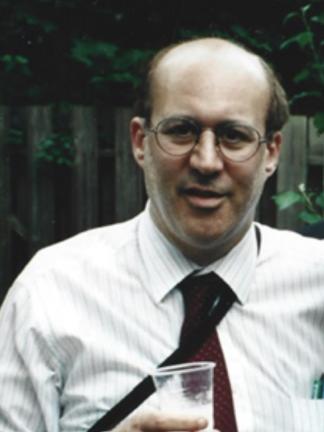
Picture, if you will, a middle-aged bald man, wearing a tweed blazer, holding a stack of over 50 pages. This same man was known to be a bit odd, finding it difficult to gain the respect from his students that he so desperately deserved. This same man who ran into his 10th grade English class and did what can only be described as a Chevy Chase-style pratfall, allowing the teenagers in the room to erupt into a fit of hysteria.
Me, the lowly and shy 15-year-old, immediately got up to help collect the pages. Once each page was gathered, my teacher walked not even five feet to his desk, tripped, and sent those 50 pages into the air one more time. You could hear the laughter all the way down the hall. He then stood up and wrote “schadenfreude” on the board. Defined as “pleasure derived by someone from another person's misfortune,” schadenfreude, unbeknownst to us, became our word of the day. We started each and every class with an experiential way of learning our words of the day, and apparently schadenfreude was no different.
Following high school, I kept in touch with this teacher, as I felt a connection to him that was hard to describe. Perhaps it was because he was the first teacher to tell me he saw potential in my writing; maybe it was because he was awkward and I was awkward and I enjoyed seeing someone like me who was painfully shy until he was put in front of a classroom and got to analyze Shakespeare’s soliloquies; probably because whenever I shared with him my academic achievements following my high school graduation, he made me feel like these were also his accomplishments and he was proud of me. Whatever my reasoning was, I was, and still am, eternally grateful to this 10th grade English teacher.
I learned that in order to be a good teacher, you need to not take yourself too seriously; students will find whatever they want to laugh at, but you have to roll with it as best you can. I learned that every opportunity is an opportunity to learn from, and with, your students. Granted, he knew what schadenfreude meant, but I am fairly certain the pleasure that my peers derived from his misfortune far surpassed anything he could have ever imagined. I learned that teaching is also an art form, a dance, that as long as you are the one leading, it can go in any direction. Finally, I learned that students can take pleasure in another person’s misfortune, but there are also teenagers who have empathy and compassion for their lowly middle-aged teacher in the tweed blazer.
Brian Cohen, Head of School, MetroWest Jewish Day School, Framingham, Massachusetts
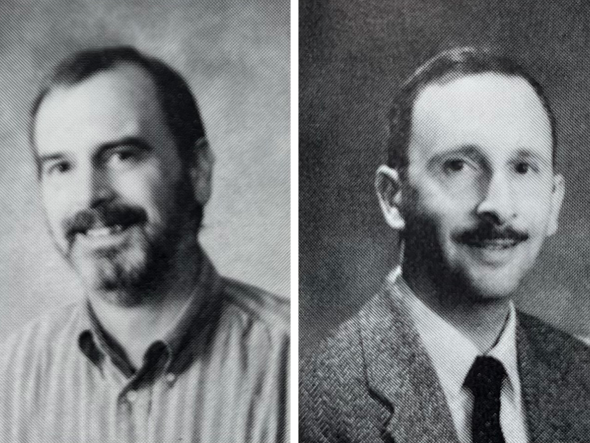
Had it not been for two teachers, I'm not sure I would have ever gone into the field of education. If I close my eyes, I can recall their classrooms and remember what they said and how they interacted with us. Mr. Mike Cupp and Dr. David Baker were so different, yet each made an indelible impression on their students. They continue to serve as complementary role models in my life and work in education.
Dr. Baker taught a full-year elective course called Zoology. It was a highly detailed and hands-on approach to learning about animals, balancing our time with texts and videos in class with our lab time, where we conducted dissections throughout the year on a number of different types of animals. I was fascinated by the learning. He was my tour guide into a world I did not yet know, full of the biological and broader scientific realm. A soft-spoken, somewhat introverted and shy individual, he was clearly dedicated to our learning. His influence was subtle but no less real, conveying his love of the material and giving us opportunities to discover and try new things.
A completely opposite personality was Mr. Cupp. Mike was this cool, bandana wearing, motorcycle riding, bearded teacher of language arts. His classroom was set up to be a bit of a hangout space where students would gather to talk to one another or to speak with Mike. Mike made himself available at all times of the day when he wasn't teaching, and you knew that you could stop by anytime to have a chat about literally anything on your mind. Mike also set up his office space with couches and bean bags and snacks so that we would feel comfortable hanging out with each other and him.
I can recall some very honest moments I had with Mike when I sought guidance and he imparted his sage wisdom. Incidentally, Mike taught us about Beowulf and Shakespeare and other famous writing, but I was honestly never so interested in the topics he taught. Whereas my appreciation for Dr. Baker's class was based nearly entirely on the material itself, my appreciation for Mike Cupp stemmed from other real needs I and others had. I always appreciated his passion for his subject, and how much it meant to him that students strove beyond their comfort zones to take on other perspectives.
It wasn't what was being taught that drew me to him so tightly, it was Mike himself. Mike was there for me and many of my peers when we needed him most during our junior and senior years in high school. I always knew we could count on Mike, and that is critical to have in the lives of teenagers. Simply put, Mike was the right guy in the right place at the right time for me and a number of my peers. In some ways he saved us.
For me, I love explaining the juxtaposition between these two teachers. One taught me to love the learning, while the other taught me to love myself and my peers even in those awkward years of high school. I took these lessons that I learned from Dr. Baker and Mr. Cupp, and I put them at the center of the work I do in the field of education. I endeavor to reach each child's mind and heart. In so doing, we all might just end up being some child's response to the question, Who was your favorite teacher?
Sindy Udell, Director of Admission, Milton Gottesman Jewish Day School of the Nation’s Capital
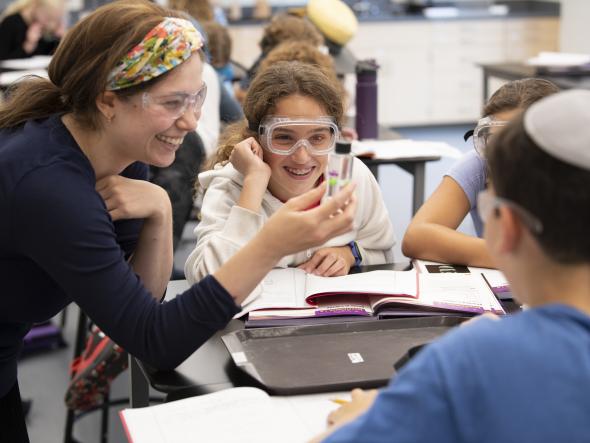
If you would have told me when I graduated law school that one day I would be in a leadership position at a Jewish day school, I would have asked you what you were smoking. Here is the story of how it happened.
My children were enrolled in a terrific small Jewish day school right in Washington, DC. I adored the school and soon was recruited to join the board. As a board member, I heard monthly of the struggles the school was engaged in, and all board members were asked to sign promissory notes to the school’s lender in case the school defaulted on its loans. At the time, I was a lawyer practicing securities and banking law, so I understood what it meant to default on loans and how close the school was to going bankrupt.
As a board member, I was assigned to help the school’s admission director figure out why enrollment was dropping and how to grow enrollment. The school of 150 students was in its 15th year, with its founding head of school at the helm, a charismatic, caring and inspiring leader. Parents and teachers adored her. Although the facilities were not gorgeous, the teachers were smart, thoughtful, engaged and dynamic. The school was progressive and innovative. It started in pre-kindergarten and went through grade six, with one to two classes in each grade. No grade had full classes, and attrition was at an all-time high.
I saw a gem of a school that was only missing one thing: enough students to support the school’s costs. I was bewildered and didn’t understand why parents weren’t knocking down the doors to send their kids there. I watched my children come home with confidence, critical thinking skills, engagement in hands-on projects, the ability to converse in Hebrew, a connection to Judaism and a deep passion about their purposeful learning.
I would sit at my legal job during the day pondering insider trading and other securities law violations, and felt a pull toward the little school that should survive and thrive. I thought, if only we could get the word out, this school will be unstoppable and will be able to educate thousands of Jewish students who would otherwise not receive a Jewish education. Then things got bleaker: Midyear in 2002-03, the admission director quit, with no replacement.
Our head of school asked me to meet her in her office the next morning with the board president to discuss the situation. We discussed the state of admission applications and the future of enrollment. It was late December, and we had zero admission applications; typically by now we would have over 100. As I spoke with confidence about our school, they looked at me and said, “Can you take over as admission director?”
I was astonished. Why me? They said, “You have been working with the admission director and seem to have a grasp on what to do. No one else understands this.” Without thinking of the implications that this gap would have on my legal career, the salary cut and the huge number of hours it would take to get systems in place, I turned and said, “Of course, but only until you find a true admission professional to replace me.” That was 20 years ago. I think they stopped looking.
I’m still working as the director of admission. We now have over 465 students enrolled in the school; we have built a middle school and a separate early childhood campus, and have done several renovations to increase the number of students we can serve. We are on our third head of school, each staying for 15 years.
Our alumni children are now sending their kids to Milton. I have attended countless bnai mitzvot, brit milahs, weddings, funerals and shivas of Milton family members. My legal career might have been derailed, but the fulfillment that I have experienced in facilitating the joyful education of countless students is immeasurable.
I close with an excerpt from a thank-you note from a parent of a recently admitted Israeli student:
Just wanted to drop a quick note thanking for your encouragement throughout this process. This is likely to change the course of our daughters’ lives (for good), and we have peace of mind knowing that our kids will be attending a school in which they’ll not only obtain an amazing education but also help to preserve their Jewish and Israeli identity.